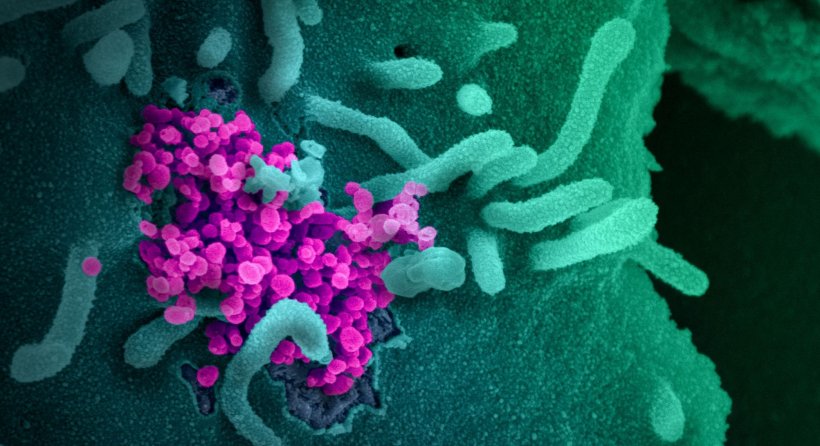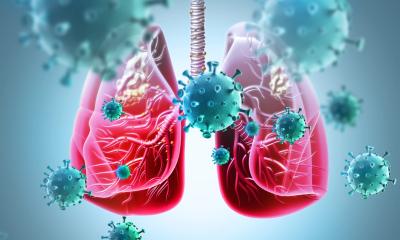
Image source: NIAID, Novel Coronavirus SARS-CoV-2 (49557785757), CC BY 2.0
News • Coronavirus duration questioned
COVID-19 symptoms disappear – while the virus itself remains
In a new study, researchers found that half of the patients they treated for mild COVID-19 infection still had coronavirus for up to eight days after symptoms disappeared.
In “Time Kinetics of Viral Clearance and Resolution of Symptoms in Novel Coronavirus Infection,” Lixin Xie, MD, Lokesh Sharma, PhD, and co-authors report on a study of 16 patients with COVID-19, who were treated and released from the Treatment Center of PLA General Hospital in Beijing between January 28 and Feb. 9, 2020. Patients studied had a median age of 35.5 years. Researchers collected samples from throat swabs taken from all patients on alternate days and analyzed. Patients were discharged after their recovery and confirmation of negative viral status by at least two consecutive polymerase chain reaction (PCR) tests.
Recommended article

News • Implications for lockdown policies
Cruise ship study hints at many ‘silent’ COVID-19 infections
The prevalence of ‘silent’ symptomless COVID-19 infection may be much higher than thought, reveals a study charting the enforced isolation of cruise ship passengers during the current pandemic, and published online in the journal Thorax. More than eight out of 10 of passengers and crew who tested positive for the infection had no symptoms. This has implications for the easing of lockdown…
“The most significant finding from our study is that half of the patients kept shedding the virus even after resolution of their symptoms,” said co-lead author Dr. Sharma, instructor of medicine, Section of Pulmonary, Critical Care & Sleep Medicine, Department of Medicine, Yale School of Medicine. “More severe infections may have even longer shedding times.” The primary symptoms in these patients included fever, cough, pain in the pharynx (pharyngalgia) and difficult or labored breathing (dyspnea). Patients were treated with a range of medications.
The time from infection to onset of symptoms (incubation period) was five days among all but one patient. The average duration of symptoms was eight days, while the length of time patients remained contagious after the end of their symptoms ranged from one to eight days. Two patients had diabetes and one had tuberculosis, neither of which affected the timing of the course of COVID-19 infection. “If you had mild respiratory symptoms from COVID-19 and were staying at home so as not to infect people, extend your quarantine for another two weeks after recovery to ensure that you don’t infect other people,” recommended corresponding author Lixin Xie, MD, professor, College of Pulmonary and Critical Care Medicine, Chinese PLA General Hospital, Beijing.
Further studies are needed to investigate if the real-time PCR-detected virus is capable of transmission in the later stages of COVID-19 infection
Lixin Xie
The authors had a special message for the medical community: “COVID-19 patients can be infectious even after their symptomatic recovery, so treat the asymptomatic/recently recovered patients as carefully as symptomatic patients.”
The researchers emphasized that all of these patients had milder infections and recovered from the disease, and that the study looked at a small number of patients. They noted that it is unclear whether similar results would hold true for more vulnerable patients such as the elderly, those with suppressed immune systems and patients on immunosuppressive therapies. “Further studies are needed to investigate if the real-time PCR-detected virus is capable of transmission in the later stages of COVID-19 infection,” Dr. Xie added.
Source: American Thoracic Society
30.03.2020











